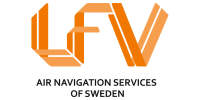IP1 - DLS European Target Solution assessment
Timeline





















Description
The main objective of this Implementing Project (IP) is the design of a Common ATN Backbone at European Level, as a first step towards the target solution, and at the same time, the performing of a detailed analysis on the technical and non-technical elements needed to ensure a full DLS implementation in Europe, based on previous technical studies and on the inputs stemming from the Capacity Assessment. This Project will perform activities strictly correlated with the works undertaken in 2016_159_AF6 (Action 2016-EU-TM-0117-M) "DLS Implementation Project Path II Project", enhancing the scope of works and developing further technical and non-technical solutions for DLS provision.
Specific objectives:
The IP main objectives are the following:
Design for a Common European ATN Ground Network;
Detailed analysis and definition on:
VME (Very High Frequency Digital Link Management Entity) requirements;
System support interfaces requirements;
Frequency planning scheme;
VGS (Very High Frequency Ground Stations) requirements;
The non-economical elements for the business case elaboration;
support to SDM for the scenarios definition for the capacity assessment of Model B and Model D;
evaluation of the performance of Model C versus Model B based on analysis of real data.
Expected Results:
The project has a double perspective, the first has to be considered as the continuation of Path II project, through which all open points, raised during the activities of this initiative, will be completed and clarified, while the second one is correlated with the need to deepen and complete the analysis of the preparatory activities for the implementation of the DLS European Target Solution identified in ELSA Project (so called Model D).
At the end of the project, it is expected to have a clear view on future European Target Solution, with its strengths and weaknesses, together with a well-defined assessment of performances of the current deployed infrastructures.
In particular, the following results are expected:
during the activities of this initiative, possible gaps will be identified and covered;
to correlate and complete the analysis of the preparatory activities for the implementation of the DLS European Target Solution identified in ELSA Project (so called
Model D);to define both strengths and weaknesses of the architectures identified in Path II project;
a well-defined assessment of performances of the current deployed infrastructures.
Performance Benefits:
The Implementation Project will contribute to a successful implementation of Datalink
Services in all European Airspace, promoting solutions able to cope with the increasing air traffic demand and issues encountered so far. Thanks to the implementation of the project outcomes, the provision of Datalink Services in particular, and the Air Traffic Management in general, will:
increase in safety and efficiency levels,
be able to cope with the scarce RF spectrum resources,
perform a more efficient deployment of ground infrastructure,
be able to provide more reliable services (e.g. by solving interoperability and provider
abort issues).
After the completion of the project, it will be possible to have a clear view on some significant technical and non-technical aspects of DLS infrastructures and related services, such as the understanding of the true performance of Model B and D - measured in real environments - and the economic impact of the proposed European Target Solution.
Additional Information
- Project Type: Air Navigation Service Provider
- CEF Call Year: 2017
- Civil/Military: Civil
- Multistakeholder: Yes
- Main AF: AF6 - Initial trajectory information sharing
- Sub AF: S-AF 6.1 - Initial Trajectory Information Sharing
- Progress Percentage: 100%
